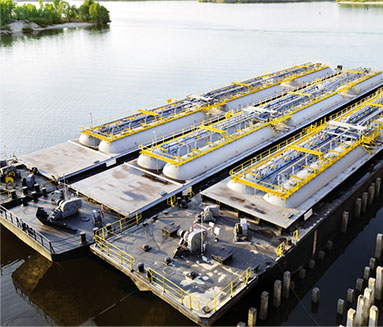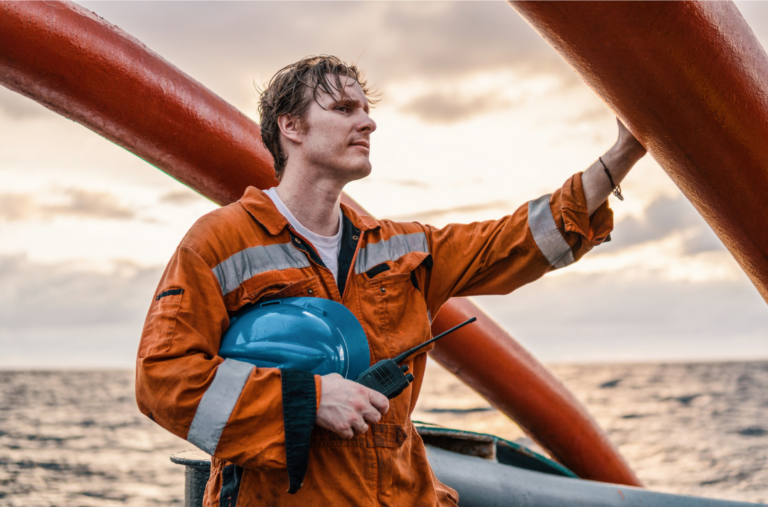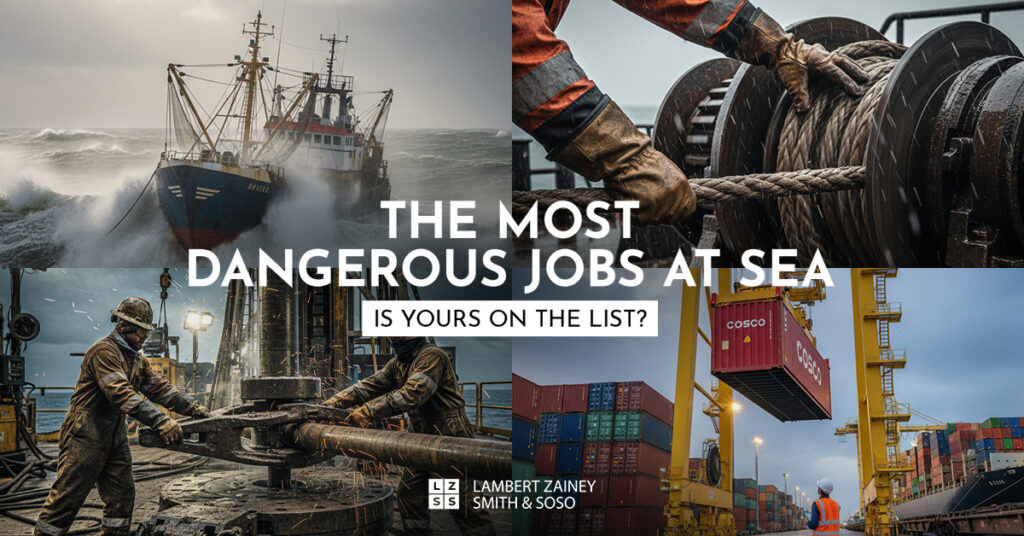Deckhand Injury Attorneys
Over $1 Billion Recovered for Maritime Accident Victims. We are proud to have a reputation for aggressively fighting for the rights of injured workers.
What Is a Deckhand And What Are Deckhand Duties?
Deckhands assist in the operation and maintenance of a vessel, performing a wide variety of on-board duties. Their exact duties and titles vary depending on the type and function of the vessel they work on. They are sometimes called barge hands, dredge deckhands, pilot-boat deckhands, ferryboat deckhands, tugboat deckhands, and others. Deckhands generally perform the following duties:
If you were hurt at work, Lambert Zainey can help. We promise to put our 40+ years of experience, knowledge and resources to work to get you maximum compensation. Contact us to schedule a free consultation with our nationally recognized deckhand accident lawyers.
Maritime Injury Attorneys – Lambert Zainey – have obtained recoveries from a long list of maritime companies, including some of the biggest names in the industry.
Common Injuries In Deckhand Accident Cases
Most deckhands work long hours. Shifts may be 12 to 14 hours per day, and they may work up to 14 days straight or more before they have a day off. They perform these duties in all types of weather, at any time of the day or night. Many of these duties place the deckhand in potentially risky situations that could result in serious injury or even death.
Back Injuries
While not always catastrophic, back injuries can severely impact an offshore worker’s ability to perform his job, affecting his future earning potential.
Amputations
The loss of limbs or digits may occur during an offshore accident, or be necessary as a result of the injuries sustained in an accident.
Sandblasting Accidents
The loss of limbs/digits may occur during an offshore accident, or be necessary as a result of the injuries sustained in an accident.
Depression
Maritime workers can spend months having no contact with friends or family, facing some of the harshest working conditions of any job.
Burn Injuries
Burn injuries can be among the most severe, with long-term physical and emotional scars. Injuries can result in permanent disfigurement.
Chemical Exposure
Exposure to hazardous chemicals, whether by inhalation or direct contact, can result in serious and costly, long-term health problems.
Water Blasting Injuries
They may not appear severe immediately after the accident. Make no mistake, this injury is extremely severe.
Brain Injuries
Maritime workers who suffer traumatic brain injuries (TBIs) can have problems with long-term cognitive and neurological functions.
Gangway Injuries
Climbing from the shore to the deck of a ship is how most gangway injuries happen. Gangway security is an important part of shipyard safety.
Emotional Distress
After a maritime accident, PTSD and other emotional trauma can be just as serious and dangerous of a health problem as a physical injury.
PTSD
Some think PTSD can only happen to war veterans. Anyone who has had a traumatic event can develop PTSD, even maritime workers.
Legal Rights Of An Injured Deckhand Under Maritime Law
General Maritime Law and the Jones Act require maritime employers and vessel owner/operators to provide a safe work environment for deckhands. This includes a seaworthy vessel with appropriate, adequate, and functioning gear, appurtenances and crew.
When vessel owners fail to provide the necessary and/or adequate equipment to perform a job safely, and such failure results in injury, an injured deckhand may pursue a claim for negligence and/or unseaworthiness against the vessel owner. A deckhand may also be able to file a claim against their maritime employer for negligence, if the vessel owner and employer are separate entities.
Over $1 Billion Recovered for Maritime Accident Victims

Oil storage tank rupture at the Murphy Oil USA refinery in Chalmette, LA. The fastest class certification and resolution of a case of its type and magnitude to date.

Arco cryogenic platform explosion caused by improper cold cut of Southern Natural Gas pipeline. Settlement for the injured and deceased in approximately twelve months.
Maritime Laws That Protect Deckhands
The difference between maritime laws and remedies is important and can be complex. The deckhand injury attorneys at Lambert Zainey have been protecting the rights of injured maritime workers since the 1970s and can help you determine which laws apply to your case.
Frequently Asked Questions
Recent News
Seacor Power Capsizing: Lambert Zainey Secures Resolution for All Families Affected by Tragedy
Maritime Slip, Trip and Fall Accidents: A Guide for Workers
The Most Dangerous Jobs in the Maritime Industry
What Our Clients’ Say About Us
NATIONALLY RECOGNIZED ATTORNEYS
CONTACT US
Our experienced attorneys are here to guide you through every step of the process, from initial consultation to settlement or trial.
Free Case Review
Fill out the form below to contact Lambert Zainey and schedule a free, confidential consultation and discuss your case with an experienced attorney.
























